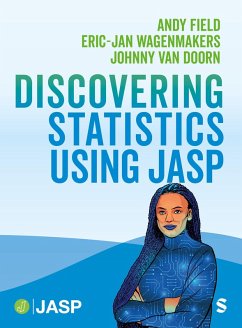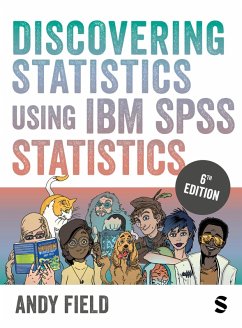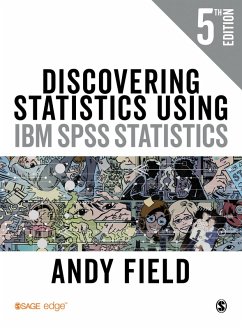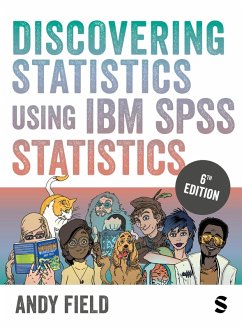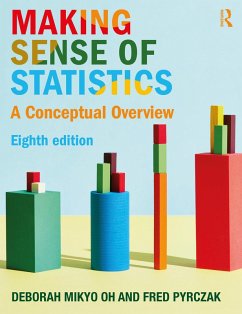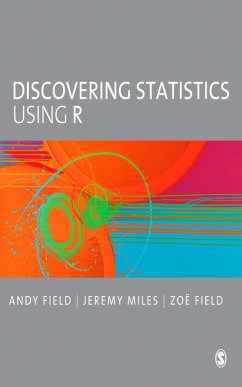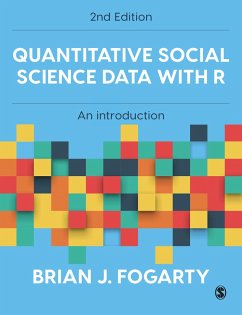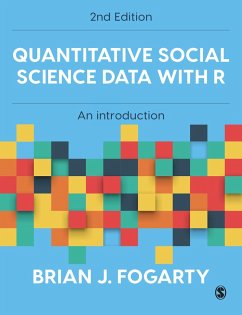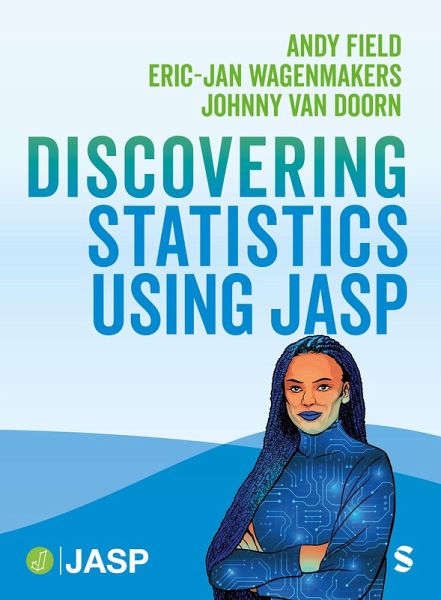
Discovering Statistics Using JASP (eBook, ePUB)
Versandkostenfrei!
Sofort per Download lieferbar
112,95 €
inkl. MwSt.
Weitere Ausgaben:

PAYBACK Punkte
56 °P sammeln!
Unlock the world of statistics with Discovering Statistics using JASP, a comprehensive guide that brings the power of JASP software into the classroom. Building on the legacy of the acclaimed DSUSS series, this book distils complex statistical concepts into engaging, step-by-step content designed for undergraduate courses. Students will gain practical skills in data analysis without needing to learn coding, thanks to JASP's intuitive point-and-click interface.This first edition also offers: Global relevance: Features international examples and case studies, making it ideal for diverse classro...
Unlock the world of statistics with Discovering Statistics using JASP, a comprehensive guide that brings the power of JASP software into the classroom. Building on the legacy of the acclaimed DSUSS series, this book distils complex statistical concepts into engaging, step-by-step content designed for undergraduate courses. Students will gain practical skills in data analysis without needing to learn coding, thanks to JASP's intuitive point-and-click interface.
This first edition also offers:
Perfect for undergraduates and lecturers alike, this book is the ultimate resource for mastering statistics with JASP. The wealth of online resources can be easily integrated into your institution's virtual learning environment or learning management system. This allows you to customise and curate content for use in module preparation, delivery and assessment.
This first edition also offers:
- Global relevance: Features international examples and case studies, making it ideal for diverse classroom settings.
- A student-focused approach: An abridged version tailored to undergraduate needs, with accessible summaries and practical solutions.
- Cutting-edge tools: Leverages free JASP software, supported by world-renowned experts and the University of Amsterdam.
- Alignment with open science: Encourages reproducibility and transparency in research practices.
Perfect for undergraduates and lecturers alike, this book is the ultimate resource for mastering statistics with JASP. The wealth of online resources can be easily integrated into your institution's virtual learning environment or learning management system. This allows you to customise and curate content for use in module preparation, delivery and assessment.
Dieser Download kann aus rechtlichen Gründen nur mit Rechnungsadresse in A, D ausgeliefert werden.




